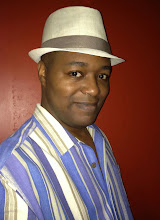
And the big night is finally here. For those of you keeping track, as usual, I made some Oscar predictions last month for all of the award categories. Now that the awards are finally being handed out, let's see how much I got right:
Best Art Direction: I just had a feeling about this one. The movie had a unique and amazing look and my gut told me that it would be recognized for it.
Predicted Winner: Alice in Wonderland
Actual Winner: Alice in Wonderland
Best Cinematography: Okay, my prediction was off with this one. But I'm glad to be wrong. This is the one that deservedit. This movie just had an amazing look that made it a pure joy to watch. I think this is just one of a couple awards that it will win tonight.
Predicted Winner: The King's Speech
Actual Winner: Inception
Best Supporting Actress: I knew it! I really believed that Melissa Leo would take this one. What a speech she gave! Guess she forgot that she was on live TV with that dropped F-bomb! And that Kirk Douglas... great choice to have him present the award. What a ham!
Predicted Winner: Melissa Leo for The Fighter
Actual Winner: Melissa Leo for The Fighter
Best Animated Feature: Toy Story 3. As usual, no surprise here. Pixar continues to dominate this category, and I don't see that changing anytime soon. And yes, they have another movie out this year: Cars 2. Will it be a lock for the this category next year. Tune in next year and we'll all find out. In the meantime, once again, good job and congratulations, Pixar!
Predicted Winner: Toy Story 3
Actual Winner: Toy Story 3
Best Adapted Screenplay: He wrote a great screenplay for a very powerful movie. Plus, he had all of the buzz and momentum behind him. figured he'd pull this one off.
Predicted Winner: Aaron Sorkin for The Social Network
Actual Winner: Aaron Sorkin for The Social Network
Best Original Screenplay: Good for late bloomers! Nice speech. One more reason why it's going to be a very good night for this movie.
Predicted Winner: David Seidler for The King's Speech
Actual Winner: David Seidler for The King's Speech
Best Foreign Language Film: Oops! I was way off with this one. Thought it really would go to Biutiful. Guess things aren't so rotten in Denmark.
Predicted Winner: Biutiful
Actual Winner: In a Better World
Best Supporting Actor: Very cool to see this win. Thank you, Batman, for not dropping the F-bomb like your co-star from The Fighter.
Predicted Winner: Christian Bale for The Fighter
Actual Winner: Christian Bale for The Fighter
Best Original Score: Trent Reznor and Atticus Ross. Really expected this to go the way of The King's Speech, but looks like I was wrong.
Predicted Winner: The King's Speech
Actual Winner: The Social Network
Best Sound Mixing: Okay, I gave The King's Speech a little too much credit in this one. I should've seen that this was a no-brainer. Like I've been saying, Inception will carry several awards tonight. My only regret is that they will be in technical categories only. But they are well deserved.
Predicted Winner: The King's Speech
Actual Winner: Inception
Best Sound Editing: Ditto. Congrats to the makers of Inception.
Predicted Winner: Inception
Actual Winner: Inception
Best Visual Effects: It will be interesting to see if this movie wins anything else tonight. Unfortunately, because I believe Inception is only going to receive technical awards love tonight, I think that's all she wrote for Christopher Nolan's groundbreaking movie.
Predicted Winner: Inception
Actual Winner: Inception
Best Editing: Ok, that's another one I got wrong. Figured it'd be another feather in The King's Speech's cap, but was not meant to be. Congrats to David Fincher's editing team.
Predicted Winner: The King's Speech
Actual Winner: The Social Network
Best Original Song: And it's Randy Newman. Wow, he's having fun tonight, isn't he? As I always say, never bet against a Pixar film!
Predicted Winner: Toy Story 3
Actual Winner: Toy Story 3
Best Director: Okay, forget what I said last month. If you have any doubt as to who will win Best Picture, this award should give you a major clue. Good advice, Mr. Hooper. Always listen to your mother...
Predicted Winner: David Fincher for The Social Network
Actual Winner: Tom Hooper for The King's Speech
Best Actress: Good for you, Natalie! What a journey for this interesting actor. Honestly, I think her best acting is still ahead of her. Keep your eyes on this one.
Predicted Winner: Natalie Portman for Black Swan
Actual Winner: Natalie Portman for Black Swan
Best Actor: One more step along the way to a Best Picture coronation for this stirring film about the royal family.
Predicted Winner: Colin Firth for The King's Speech
Actual Winner: Colin Firth for The King's Speech
Best Picture: Very nice film. Glad to see it win. However, there were no surprises here. It was the hands down favorite and to be honest, I would've been surprised if any of the other films won.
Predicted Winner: The King's Speech
Actual Winner: The King's Speech
Now let's see how many of these that I got right: out of the 17 categories that I tracked and blogged about this year, I got 12 of them right. That's about 75%. Not too bad. But I'd like to get it up higher next year.
Well, once again, that's it folks. As always, I invite you to join me again next year - same time, same blog - to find out which films from 2011 will take home Oscar gold.
Until then, I hope you have a magical time at the movies. I know I will.












